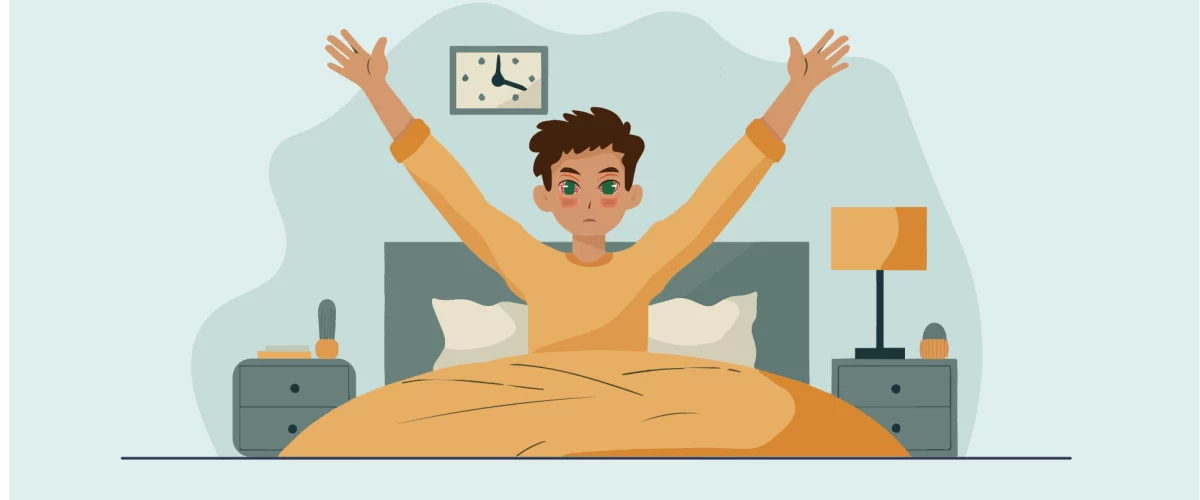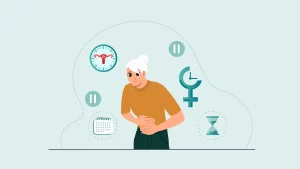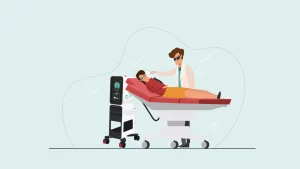Waking up with dry eyes is a frustrating way to start the day. Many people describe the sensation as gritty, burning, or blurry until they blink a few times. While symptoms often fade later in the morning, persistent dry eyes can point to an underlying problem. Understanding why morning dry eye happens and how to manage it is the first step to long-term relief.
What is Dry Eye Disease?
Dry eye disease is a chronic eye condition that develops when the tear film is unstable. A healthy tear film coats the surface of the eye, keeping it smooth, nourished, and protected from infection. When the balance of the tear film is disrupted—either by producing too few tears or tears of poor quality—the surface of the eye becomes irritated and inflamed, which causes dry eyes.
Types of Dry Eye Disease
People generally classify dry eye into two categories:
- Aqueous-deficient dry eye – This happens when the lacrimal glands don’t produce enough tears. It is often associated with autoimmune conditions like Sjögren’s syndrome.
- Evaporative dry eye – In this case, the eye produces tears, but they evaporate too quickly. Dysfunction of the meibomian glands, which produce the oily layer of the tear film, is the main cause.
Some people experience a mix of both dry eyes types, which makes diagnosis and treatment more challenging.
Main Causes of Dry Eye
There isn’t a single cause of dry eyes. Instead, multiple factors can disrupt the tear film.
For example, age plays a role: as we grow older, natural tear production declines. Hormonal changes in women, especially after menopause, make this even more noticeable. Medical conditions like diabetes or thyroid disease may also interfere with the eye’s ability to stay lubricated.
Certain medications are another frequent trigger. Antihistamines, antidepressants, acne treatments, and beta-blockers can all reduce tear secretion. Finally, lifestyle habits—such as extended screen time that lowers blink rate, or exposure to air conditioning and smoke—can cause the eyes to dry out faster than they should.
Why do I wake up with dry eyes in the morning?
Many patients notice that their dry eye symptoms are strongest right after they wake. During the day, blinking refreshes the tear film, but at night the eyes remain closed for hours. Any problem with tear production or eyelid closure becomes more obvious in the morning.
Symptoms of morning dry eyes
People with morning dry eye often describe:
- A burning or stinging feeling upon waking.
- The sensation of sand or grit in the eyes.
- Temporary blurred vision that clears after blinking.
- Redness or irritation of the eyelids.
While these symptoms may fade as the day goes on, recurring discomfort suggests there is a deeper cause.
Common causes
Several causes can explain why dry eyes are worse in the morning:
- Nocturnal lagophthalmos – Some people sleep with their eyelids slightly open, leaving the surface of the eye exposed and can lead to dry eyes.
- Bedroom environment – Dry air from heaters, air conditioning, or fans accelerates tear evaporation overnight, causing dry eyes.
- Blepharitis or meibomian gland dysfunction – Inflammation or blocked oil glands prevent proper tear lubrication during sleep.
- Contact lens use – Wearing lenses too late in the evening, or overnight, deprives the eyes of oxygen. This alleviates dry eyes.
- Medication side effects – Taking antihistamines or antidepressants before bed can reduce tear secretion at night.
Is morning dry eye linked to sleep apnea?
Yes, there is growing evidence that dry eye in the morning can be linked to sleep apnea, particularly in patients who use CPAP machines.
One of the most common issues is air leakage from the CPAP mask. If air escapes and blows toward the eyes, it can dry out the tear film over several hours of sleep. Some patients with sleep apnea also experience incomplete eyelid closure, which adds to the problem.
Beyond mechanical factors, poor oxygenation and disrupted sleep may indirectly affect the ocular surface. If you suspect that your dry eyes are linked to sleep apnea, it’s worth discussing the issue with both a sleep specialist and an eye doctor. Adjustments such as humidifiers, properly fitted CPAP masks, or even moisture chamber goggles during sleep can make a big difference.
How to treat dry eyes?
The good news is that dry eye in the morning can usually be managed. Treatment depends on the root cause and may involve a mix of professional therapies and lifestyle changes.
Specialized Treatments for Dry Eye
One of the most promising modern approaches to treat dry eyes is Intense Pulsed Light (IPL) therapy. Originally used in dermatology, IPL has shown excellent results in treating meibomian gland dysfunction (MGD)—a major contributor to evaporative dry eye. By applying flashes of light to the skin around the eyelids, IPL warms and unclogs the oil glands. This improves the quality of the tear film and reduces inflammation. Many patients notice a significant decrease in symptoms after a few sessions of this treatment.
Other effective medical treatments include:
- Scleral lenses – large custom-made contact lenses that vault over the cornea and create a reservoir of fluid. They provide constant hydration and protect the eye surface, especially in severe cases.
- Punctal plugs – tiny devices inserted into the tear ducts to prevent tears from draining too quickly, keeping the eye moist for longer.
- Eye drops – artificial tears that provide short-term relief
These therapies are best suited for patients whose symptoms remain despite lifestyle adjustments and over-the-counter lubricants.
Home Remedies and Lifestyle Changes
For mild to moderate morning dry eye, daily habits can make a big difference, and can help to treat dry eyes.
A humidifier in the bedroom helps maintain proper moisture in the air, preventing the tear film from evaporating overnight. Keeping the sleeping environment comfortable is especially important during winter or in homes with air conditioning.
Equally important is eyelid hygiene. A simple daily routine can improve the health of the meibomian glands:
- Heat – Apply a USB heating mask for 8 to 15 minutes to soften blocked oils.
- Blink – Blink strongly 3 to 5 times under the mask from 6 minutes onwards. This step extracts poor-quality meibum.
- Clean – Clean your eyelids with hydrating wipes. This step removes meibum residues.
Click here to watch our tutorial.
Lifestyle adjustments also play a role. Reducing screen time—or at least taking regular breaks—helps maintain a normal blink rate, which is crucial for spreading tears evenly. Staying hydrated and adding omega-3 fatty acids to the diet further support tear quality. All these everyday tips can help treat dry eyes.
When to see a doctor for dry eyes?
Not every episode of morning dry eyes requires medical care. However, it’s important to seek help if symptoms persist or worsen.
Warning signs include:
- Persistent pain or redness that does not improve.
- Vision that remains blurry even after blinking.
- Sensitivity to light or difficulty keeping the eyes open.
- Dependence on artificial tears without lasting relief.
- Dry eye that appears after starting a new medication.
An eye doctor can run tests to measure tear quantity and quality, identify blocked glands, and rule out systemic causes such as autoimmune disease.




